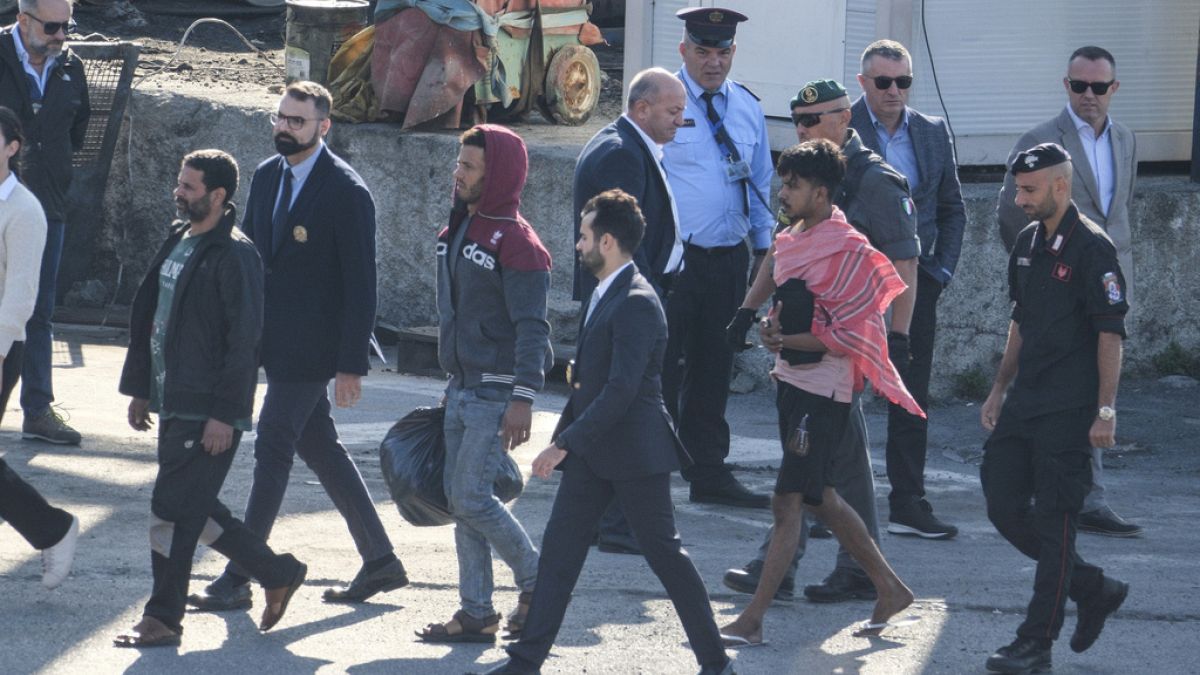Italian Prime Minister Meloni’s flagship policy of outsourcing migrant processing to Albania has hit a roadblock after a court ordered the return of the first batch of migrants from Albania back to Italy. The ruling is a significant setback to the plan of sending up to 3,000 migrants per month to Albania for processing by Italian coast guard. The court rejected the detention of 12 migrants from Bangladesh and Egypt, deeming their countries unsafe, which could potentially hinder the entire arrangement between Italy and Albania. Prime Minister Meloni criticized the judges and announced plans to appeal the ruling.
The decision by the court in Rome has raised doubts about the feasibility of the Italy-Albania agreement, which aims to handle illegal migration in a new “model” way. The judges’ determination that countries like Bangladesh and Egypt are unsafe, based on international standards, could jeopardize the future of the programme. The government has expressed intentions to convene a Cabinet meeting to address the issue and potentially introduce new regulations to overcome the legal obstacles hindering the process. The ruling has sparked a debate between political parties with the opposition highlighting the complexities and expenses associated with the current scheme.
The migrants, comprising mainly Bangladeshis and Egyptians, were transferred to Albania for accelerated border procedures under the deal between the two countries. However, the court’s decision requires all of them to be sent back to Italy due to safety concerns related to their countries of origin. The facilities in Albania, which are under Italian jurisdiction, are expected to cost Italy a significant sum over the next five years. Despite the collaboration with Albania to house asylum-seekers as per the agreement, the legal complexities resulting from the recent court ruling have cast a shadow over the efficacy of the programme.
The Italian government’s decision to outsource the processing of migrants to Albania has received mixed reactions nationally and internationally. While some countries have praised the move as a novel solution to address the growing migrant crisis, others have raised concerns about the potential consequences of such outsourcing agreements. European Commission President Ursula von der Leyen endorsed the Italy-Albania deal as an example of innovative thinking in handling migration within the European Union. However, the recent legal challenges faced by the programme have highlighted the intricacies involved in implementing such agreements and ensuring compliance with international standards.
The ruling by the Rome court is likely to have far-reaching implications on Italy’s migrant processing policies and collaborations with other countries. The government’s plan to send thousands of migrants for processing in Albania now faces uncertainty due to safety concerns raised by the court regarding the countries of origin of the migrants involved. The legal battle between the government and the judiciary underscores the complexities of managing migration flows and ensuring adherence to international laws and standards. The future of the Italy-Albania agreement hangs in the balance as both parties navigate the legal challenges posed by the recent court decision.
In conclusion, the recent court ruling ordering the return of migrants from Albania back to Italy has posed a significant challenge to Prime Minister Meloni’s flagship policy of outsourcing migrant processing. The decision raises concerns about the feasibility and effectiveness of the Italy-Albania agreement in handling illegal migration. The government’s response to appeal the ruling and potentially introduce new regulations reflects its commitment to pursuing the programme despite legal hurdles. The outcome of the legal battle between the government and the judiciary will determine the future of Italy’s collaboration with Albania and its ability to manage migrant inflows effectively. The ongoing debate surrounding the issue highlights the complexities and controversies associated with addressing migration challenges in Italy and beyond.











